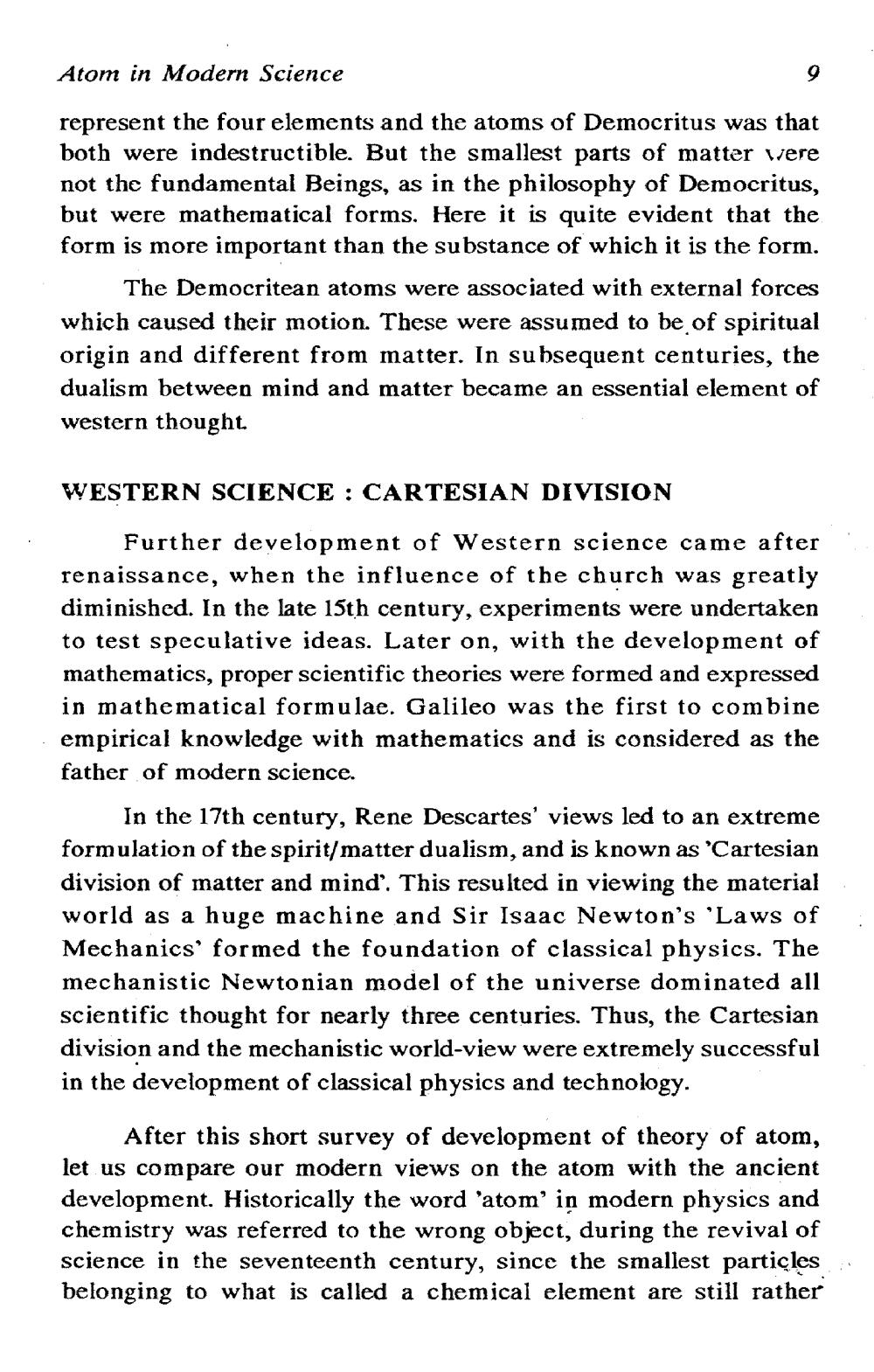________________
Atom in Modern Science
represent the four elements and the atoms of Democritus was that both were indestructible. But the smallest parts of matter were not the fundamental Beings, as in the philosophy of Democritus, but were mathematical forms. Here it is quite evident that the form is more important than the substance of which it is the form.
9
The Democritean atoms were associated with external forces which caused their motion. These were assumed to be of spiritual origin and different from matter. In subsequent centuries, the dualism between mind and matter became an essential element of western thought.
WESTERN SCIENCE CARTESIAN DIVISION
Further development of Western science came after renaissance, when the influence of the church was greatly diminished. In the late 15th century, experiments were undertaken to test speculative ideas. Later on, with the development of mathematics, proper scientific theories were formed and expressed in mathematical formulae. Galileo was the first to combine empirical knowledge with mathematics and is considered as the father of modern science.
In the 17th century, Rene Descartes' views led to an extreme formulation of the spirit/matter dualism, and is known as 'Cartesian division of matter and mind'. This resulted in viewing the material world as a huge machine and Sir Isaac Newton's 'Laws of Mechanics' formed the foundation of classical physics. The mechanistic Newtonian model of the universe dominated all scientific thought for nearly three centuries. Thus, the Cartesian division and the mechanistic world-view were extremely successful in the development of classical physics and technology.
After this short survey of development of theory of atom, let us compare our modern views on the atom with the ancient development. Historically the word 'atom' in modern physics and chemistry was referred to the wrong object, during the revival of science in the seventeenth century, since the smallest particles belonging to what is called a chemical element are still rather




